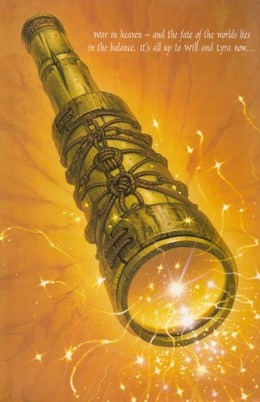Greetings.
Jewish date: 25 Marḥeshwan 5770 (Parashath Ḥayye-Sarah).
Today’s holidays: Birth of Baha’u’llah (Bahá’í Faith), Saint Day of Josaphat (Roman Catholicism).
Note: One month until Ḥanukkah. Time to start reading up on the relevant laws.
Worthy causes of the day: “
Restore Coastal Louisiana - The Petition Site”, “
End Gender Discrimination in Health Insurance Coverage - The Petition Site”, and “
Big Insurance Kills”.
Topic 1: “
2012: The End Of The World?” I am not the only out there analyzing bad religious ideas. This chart gives a nice summation of the purported disaster on December 21, 2012, both what the believers and skeptics claim.
Topic 2: Chapters 24-25 of
The Amber Spyglass (
His Dark Materials, Book 3) by Philip Pullman. Pullman leaves Lyra and Will in the land of the dead and tells us about the further adventures of Mrs. Coulter instead. Mrs. Coulter has decided to play Lord Asriel and the Magisterium off each other and be in favor with whoever wins in the end. Having stolen an intention craft from Lord Asriel, she proceeds to the Consistorial Court in Geneva, where she is promptly taken into custody. (She ran off with Lyra at the end of
The Subtle Knife, not liking the idea of her daughter being killed. The Magisterium is therefore collectively unhappy with her.) This episode quickly goes downhill, with Mrs. Coulter suggesting to the President of the Consistorial Court that the Authority has gone senile and that it may be merciful for Will to use the subtle knife to euthanize him. (Obvious bad idea.) This plot thread goes further downhill with the President via proxy stealing some of Lyra’s hair from a locket Mrs. Coulter wears around her neck. Through use of a process which demonstrates that Pullman fundamentally misunderstands the nature of quantum entanglement, the President hopes to use Lyra’s hair to make Lyra explode. This gives Mrs. Coulter an opportunity to play the hero and the Magisterium an opportunity to look evil. Needless to say, Mrs. Coulter is successful in stopping this evil scheme, as there are still 13 chapters to go, and she ends up in Lord Asriel’s hands again at the end. Theology grade for these chapters: F. Physics rating for these chapters: F. Plot rating for these chapters: F, as the scheme is unbelievable and could easily be removed without affecting the rest of the story. Probability that Pullman will redeem himself before the end of the trilogy: trivially small.
Topic 3: Seeing that I have started working on the New Testament in the original Greek, I decided it was appropriate to start watching this pile of Gospel-based films I have accumulated. As such, last night I watched
Godspell, which puts the action in New York City during the 1970s. On the bright side, the cast does a lot of creative dramatization of the parables and teachings of Jesus, interspersed with songs. On the down side, there is no serious attempt at understanding anything Jesus had to say or making any of the action actually make sense in 1970s New York. For almost all of the film, Jesus and his disciples wander around the city, without encountering anyone else, doing their dramatization and singing. There is a Last Supper at the end, with Jesus making the proper Jewish blessings over maṣṣah and wine(!), but that ends with a whimper with the crucifixion being the arrival of police cars—but no police—and Jesus and the disciples putting themselves up against a chain-link fence. The film ends with the disciples carrying off the body of Jesus, without any explanation why he is dead (or unresponsive) or a resurrection. That’s it. Next to no plot. Things are further confused by having John the Baptist and Judas Iscariot being the same person and having no motive whatsoever for betraying Jesus. In short, this film is so lame that it makes
Jesus Christ Superstar look good by comparison.
Peace.
Aaron




![Reblog this post [with Zemanta]](http://img.zemanta.com/reblog_e.png?x-id=062965ed-7221-4551-8606-ff05997b1113)

![Reblog this post [with Zemanta]](http://img.zemanta.com/reblog_e.png?x-id=c49b1b50-2df7-4391-a068-03425202364e)